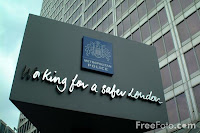Historically, radio journalists and correspondents have been on-air personalities. In the days before television news and AP feeds, leads were tracked and reported on by radio journalists. The internet has allowed listeners to access news on their terms. Like newspapers, radio news has changed. In radio’s case, it has shifted to talk radio and intellectual forums.
Radio’s importance has to follow market trends like any other industry. Breaking news is covered by whoever can deliver it while it breaks. Weather alerts and breaking sports news are still covered effectively by radio. There should be a legitimate demand for ‘copy’ writers there. Broadcast news just isn’t found on the radio anymore though. Not since the early days of the ‘space race’, really.
Workers still rely on the radio for contact with the outside world on the job. When sometimes we cannot get to our TVs or even our cell phones within workplace protocol, radio often still provides the contact we need. Without a lot of on-air copy, writers might have better luck writing advertisements for air play. Or find the right radio show. NPR is known for programs that promote the arts. Shows that feature sketches or storytelling might benefit from a good writer.
Public radio has become a powerful force in radio. While other networks were selling-out for political influence, public radio decided to become an educational influence. Its audiences are among radio’s most savvy. Maybe that demonstrates the return on investing in an educated public? It translates to investing in an educated demographic. Not that NPR has any political schemes. I think its interests in an educated public are purely utopian.
Like I alluded to earlier, an English student ought to make a good ‘deejay’ too. A communications or engineering student might have an edge in some ways but it always depends on the candidate. ‘Fluency’ is what would make an English student attractive as a deejay. Given the audience speaks English conversationally, I guess. Otherwise, fluency isn’t much of an asset.
 English students possess other strengths and skills too. Command of the language is their chief asset in broadcast radio though. Insider correspondence from the industry might demand an English student’s skills. I envy anyone who covers it. No one else captures narrative like an English student. Sometimes, a background in the language is the only way to give any story its justice.
English students possess other strengths and skills too. Command of the language is their chief asset in broadcast radio though. Insider correspondence from the industry might demand an English student’s skills. I envy anyone who covers it. No one else captures narrative like an English student. Sometimes, a background in the language is the only way to give any story its justice.
